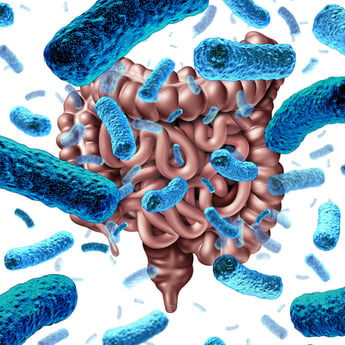eStoreRx™
Online Supplement Dispensary
eStoreRx™ is an easy direct-to-patient ordering & fulfilment program for lifelong wellness.
For over 40 years, Biotics Research Corporation has revolutionized the nutritional supplement industry by utilizing “The Best of Science and Nature”. Combining nature’s principles with scientific ingenuity, our products magnify the nutritional
eStoreRx™ is an easy direct-to-patient ordering & fulfilment program for lifelong wellness.
Biotics Research is proud to expand our commitment to education with the Wellness Unfiltered Pro Podcast. Each episode delves into key health topics and the clinical applications of our premier products. Through candid, insightful conversations, our team offers practical guidance to keep you informed and empowered as a healthcare professional.
February 19 2026
The journal Sleep Medicine Reviews recently published the results of a systematic review and meta-analysis examining melatonin supplementation among c...
 The gut-brain axis is undeniable, but specific mechanisms of influence continue to be investigated. Specifically, the gut microbiota is now considered the body’s major neuroendocrine system, controlling body processes including the stress response and the hypothalamic-pituitary-adrenal (HPA) axis.
The gut-brain axis is undeniable, but specific mechanisms of influence continue to be investigated. Specifically, the gut microbiota is now considered the body’s major neuroendocrine system, controlling body processes including the stress response and the hypothalamic-pituitary-adrenal (HPA) axis.
Back in the early 20th century, Nobel laureate, Ilya Metchnikoff, observed that the growth of cholera could be reduced by some microbes and enhanced by others. He proposed that commensal bacteria within the intestine could contribute to protection against this pathogen and alteration of the gut bacteria could prevent disease. In 2001, Nobel Prize winner Joshua Lederberg coined the term “microbiome”. The microbiome is the “ecological community of commensal, symbiotic and pathogenic microorganisms” that can be found on mucosal surfaces, including the eye, mouth, lungs, and the gut. Recent research reviews the connection between the microbiota and the neuroendocrine system.
The article is a review of the literature showing the connection of the microbiome to remyelination, microglia function, diseases like multiple sclerosis (MS), recovery from spinal cord injury and even behavior. The article cites research that links MS with intestinal permeability. Other research shows a link between the microbiome and pediatric MS, suggesting a connection between myelin production and metabolites produced by gut microbes (particularly p-cresol). Short chain fatty acids from the bowel flora (especially butyrate) affect remyelination, microglia function, and also oligodendrocyte differentiation. In the autoimmune disease, neuromyelitis optica, research shows there may be a connection to bowel ecology. Another study showed the connection between CNS inflammation and the gut microbiome in mice.
We have not yet gotten to the point where we can identify specific bowel microbes and specific diseases. One study, however, has taken a step in that direction. It found that recolonization with wild type B. fragilis maintained resistance to experimental autoimmune encephalomyelitis, whereas reconstitution with polysaccharide A-deficient B. fragilis restored experimental autoimmune encephalomyelitis susceptibility.
Submit this form and you'll receive our latest news and updates.
Nature Microbiology recently published the results of a multi-cohort multi-omic analysis that examined the link between ...
Learn moreBMC Microbiology recently published a meta-analysis of metagenomic sequencing data from obese and non-obese participants...
Learn moreResults of a prospective and longitudinal study conducted among schoolchildren were recently published in Allergology In...
Learn more
*These statements have not been evaluated by the Food and Drug Administration. This product has not intended to diagnose, treat, cure, or prevent any disease.
© 2025 Biotics Research Corporation - All Rights Reserved
Submit your comment